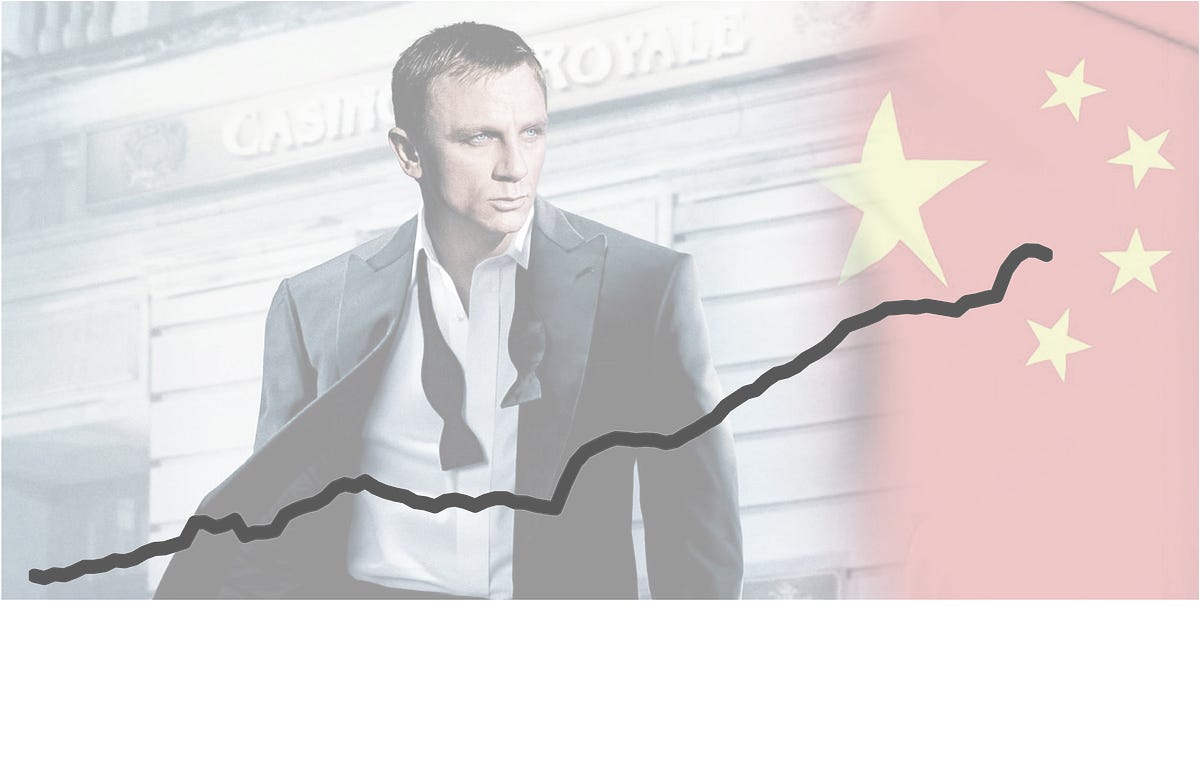But that was then
Evergrande has disclosed that ICBC is one of its principal bankers, although relative to its overall size the exposure is small. The bigger risk is that ICBC and other Chinese banks suffer contagion via a deteriorating real estate market.

Capital Thinking · Issue #943 · View online
Fifteen years ago – almost to the day – I sat in a meeting room at my London-based hedge fund, across the table from the management team behind the world’s biggest IPO.
No Time to Die: China Banks Edition
Marc Rubenstein | Net Interest:
They’d come halfway across the world on a global roadshow to educate investors about their company. There was nothing fancy about this company, no cutting edge tech or innovative business model.
It was a bank – the largest in China. After years of Communist party ownership, it was opening itself up to private capital.
The meeting itself was a formality. We wanted stock and they knew we wanted stock. An interpreter sat alongside the most senior executive and questions and answers were routed via her.
They told us about their operational reforms, about their financial restructuring and about their strategy to grow fee income. But the investment case was simple: this was the biggest bank in China, home to almost a fifth of the deposits in the country, and an investment in it would grant exposure to the rapid growth of the country’s economy.
The IPO was 30 times oversubscribed; the domestic retail tranche even more so. It came at a price that valued the bank at 2.2 times its book value (the accounting value of its assets). On the first day of trading, the stock went up 12% and over the next year it doubled.
But that was then.
The Industrial & Commercial Bank of China’s stock has spent most of its time lower than that first year high. Right now, it languishes at 0.45 times its book value.
Questions about profligate loan growth and impending bad debts have swirled around the bank for the past few years. But with property developer Evergrande – which we discussed here back in July – struggling to make debt repayments, these questions are becoming more pertinent.
Evergrande has disclosed that ICBC is one of its principal bankers, although relative to its overall size the exposure is small. The bigger risk is that ICBC and other Chinese banks suffer contagion via a deteriorating real estate market.
With $300 billion of assets, Evergrande is big, but if you want big, take a look at the balance sheets of Chinese banks…When ICBC came to the market in 2006 it had only been in existence for around 20 years. It was formed as part of a sweeping reform of the Chinese banking sector that began in 1978.
Prior to that, there was only one bank in China – the People’s Bank of China. The People’s Bank gathered deposits from households and a separate entity, under the direction of the Ministry of Finance, disbursed funds to state-owned companies to finance investment projects. The reforms carved four new banks out of this set-up, each with a slightly different mandate.
ICBC – the Industrial & Commercial Bank of China – was the last to be formed, to oversee the commercial banking functions previously done by the People’s Bank. The four banks bolstered their presence by building out branch networks and growing their balance sheets.
While the reforms put the banks on a slightly more commercial footing, their operations were still very much driven by government mandate.That loosened up in 1994 with the establishment of a group of formal ‘policy banks’ tasked with relieving the state-owned commercial banks of state-directed lending practices.
A commercial banking law was passed the following year which shifted responsibility for business operations, risk management and financial performance onto the banks themselves. Sadly, the new law was too late to protect the banks from the state-directed lending they had done in the past.
In the late 1990s, the government turned its attention to the corporate sector and closed down thousands of state-owned enterprises. Many were unable to repay their debts, leaving the banks saddled with enormous non-performing loan portfolios.
The government injected additional capital into the banks and set up four ‘bad banks’, one for each of them, to take on their worst performing loans.

Photo credit: Kayla Kozlowski on Unsplash
